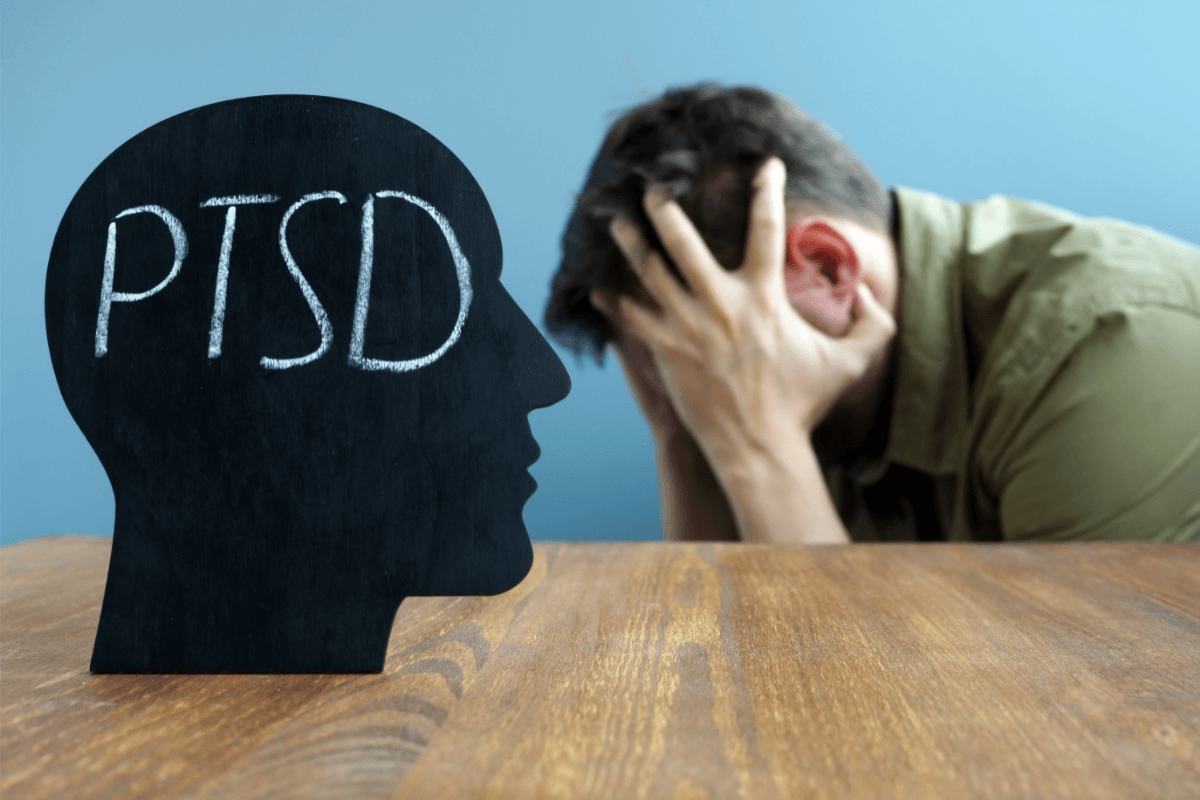When someone experiences trauma, they may develop post-traumatic stress disorder (PTSD). This mental health condition can cause people to feel scared or worried long after the traumatic experience is over. Developing coping skills and learning to be resilient can help those with PTSD in their quest for long-term recovery. As we look at what some of these coping skills include, we’ll also explore how PTSD treatment in Scottsdale at Healing Foundations Center can help.
What Causes PTSD?
PTSD is caused by either being part of a highly stressful or terrifying event or witnessing one.[1] Those who have PTSD may be victims of violence, have been involved in a horrific accident, or experienced war or other traumas.
PTSD is believed to be caused by a dysfunction in the parts of the brain that process fear and stress.[2] When someone experiences trauma, it desensitizes the parts of the brain that control decision-making and impulse control.
People suffering from this mental health condition can experience severe anxiety, flashbacks, nightmares, and uncontrollable thoughts about what happened. By learning how to deal with the effects of PTSD, people can reduce the instances of these types of things occurring.
After PTSD Treatment in Scottsdale: Coping Skills for Long-Term Recovery
Build Supportive Relationships
Having a strong support system is vital for those learning to cope with trauma. Family, friends, or those in support groups can provide the necessary understanding and empathy for those who have PTSD. Support groups can provide the relationships people need to interact with others who have similar experiences and are trying to cope. Sharing experiences with those you trust can help in the healing process.
Journaling
Researchers have found that journaling can help PTSD patients process their traumas.[3] Writing about memories or emotions gives those with PTSD a safe spot to express themselves and confront their pain. They don’t have to worry about being judged. They can simply write what they are feeling as they process their traumas.
Practice Mindfulness after PTSD Treatment in Scottsdale
Mindfulness includes meditation, being in the moment, and being aware of your breath. It can help manage overwhelming emotions and reduce anxiety, both of which are necessary for PTSD patients. Meditation can also help relax the body and better manage stress. Many meditation apps are available that can walk you through the mindfulness process.
Grounding Exercises
Grounding exercises are techniques that can help people refocus on the present moment and distract from feelings that may be causing anxiety.[4] Examples include placing your hands in water to experience how it feels and the temperature. Concentrating on your steps, even counting them while you walk, can also be a grounding exercise.
Engaging in Art & Music
Participating in the arts, such as art therapy or music, can provide an excellent outlet for emotions. Creative expression offers a nonverbal way to release emotions associated with trauma. This can be critical for those who may not be ready to talk about the trauma they’ve experienced but need a way to express their emotions.
Practice Self-Care
Practicing self-care and making it a priority is vital for everyone’s overall well-being, especially for PTSD patients. Getting enough sleep, eating nutritious meals, and exercising can all help the body function better and focus.
Regular exercise can boost neurotransmitters, such as serotonin and dopamine, to enhance mood. Exercise and other self-care routines also help increase self-esteem. You have a greater sense of self-worth when you look good and feel good about yourself. This can be extremely important for abuse victims and anyone who has experienced trauma.
Spend Time Outdoors
Spending time in nature can help to reduce stress and anxiety, which is an excellent coping skill for those with PTSD. Hiking, gardening, or camping are all great ways to spend time in nature.
Repeat Positive Affirmations after PTSD Treatment in Scottsdale
Make it a habit to incorporate positive affirmations into your daily routine. This can set the tone for a positive mindset and help to promote compassion and resilience. One idea is to tape a positive thought on your mirror and repeat the words as you get ready in the morning. This can help to counteract negative thoughts and eventually change your mindset.
Healing Foundations Center Offers PTSD Treatment in Scottsdale
Healing Foundations Center provides PTSD treatment in Scottsdale to give patients the best chance at long-term recovery. Our treatment includes a variety of methods, such as cognitive restructuring to address memories associated with traumatic events, as well as somatic experiencing and eye movement desensitization and reprocessing. Different types of therapy can also help PTSD patients learn to cope with the traumatic event and the impact it is having on their lives. Our team works with each patient to determine the best combination of treatments.
Contact the Healing Foundations Center team today to learn about our various PTSD treatment options in Scottsdale.
Sources:
[1] https://www.mayoclinic.org/diseases-conditions/post-traumatic-stress-disorder/symptoms-causes/syc-20355967
[2] https://pmc.ncbi.nlm.nih.gov/articles/PMC3181836/
[3] https://www.verywellmind.com/how-to-use-journaling-to-cope-with-ptsd-2797594
[4] https://www.healthline.com/health/grounding-techniques
